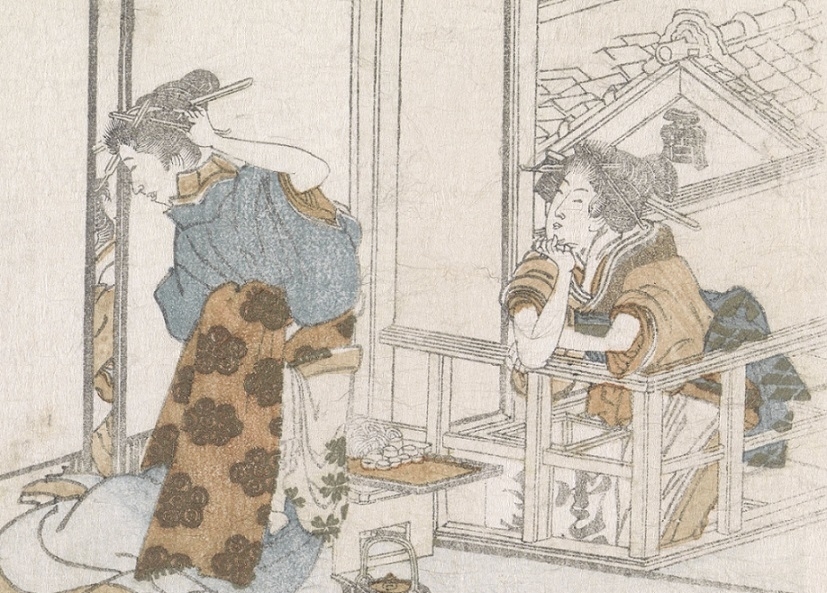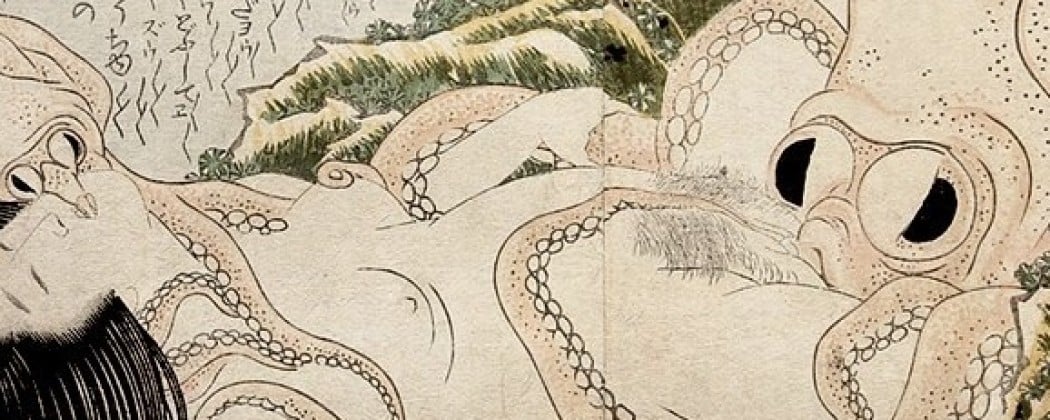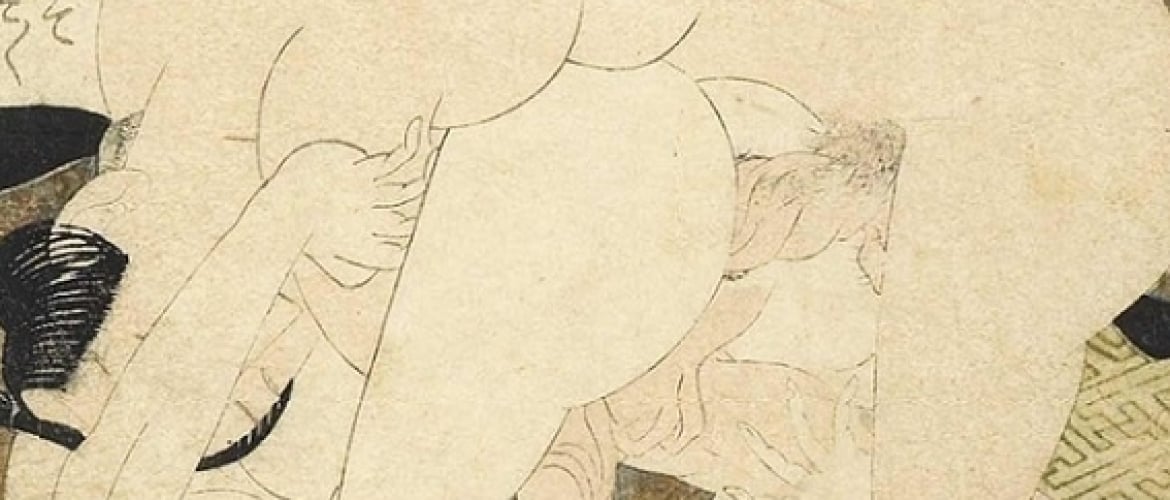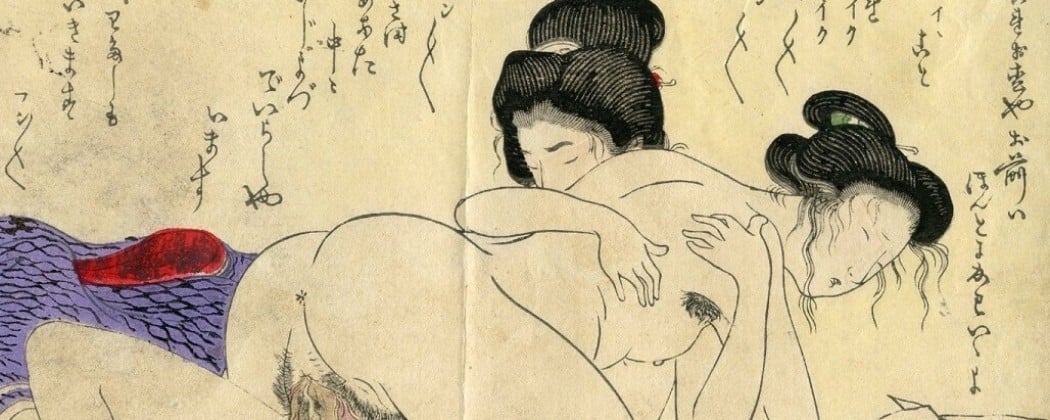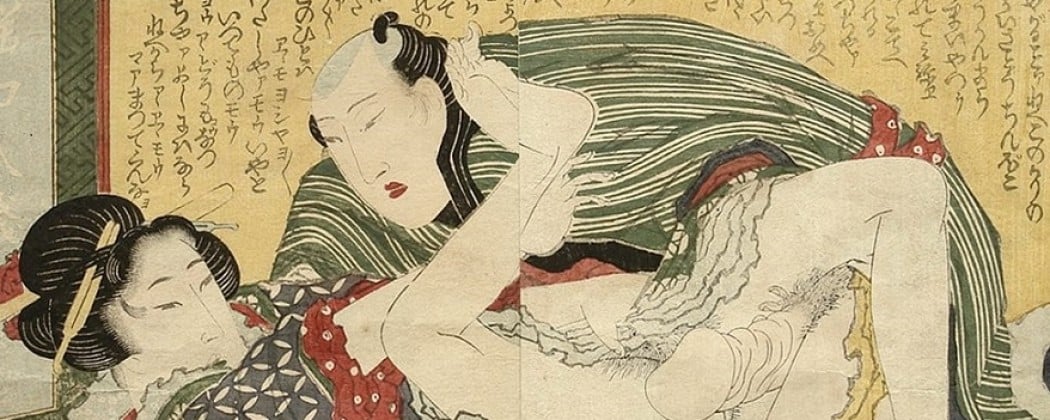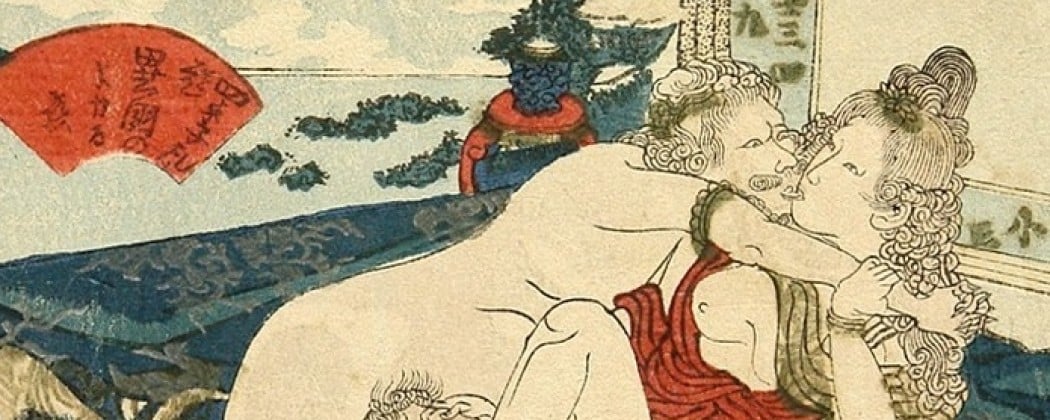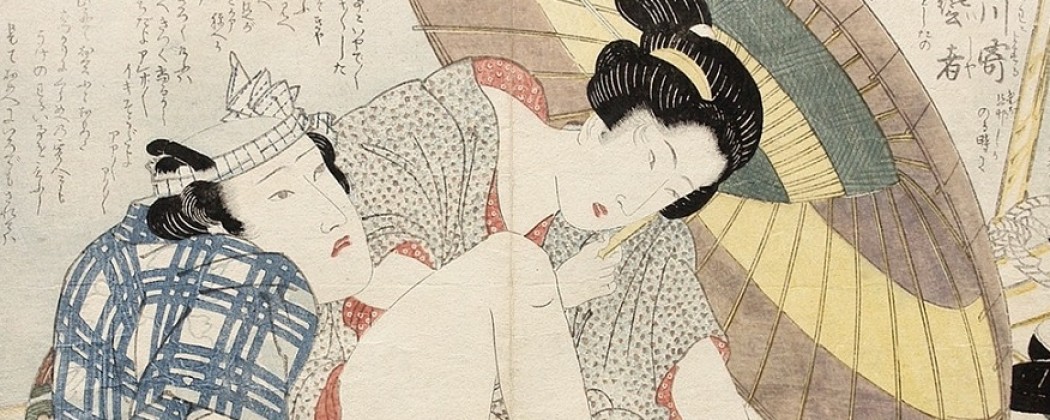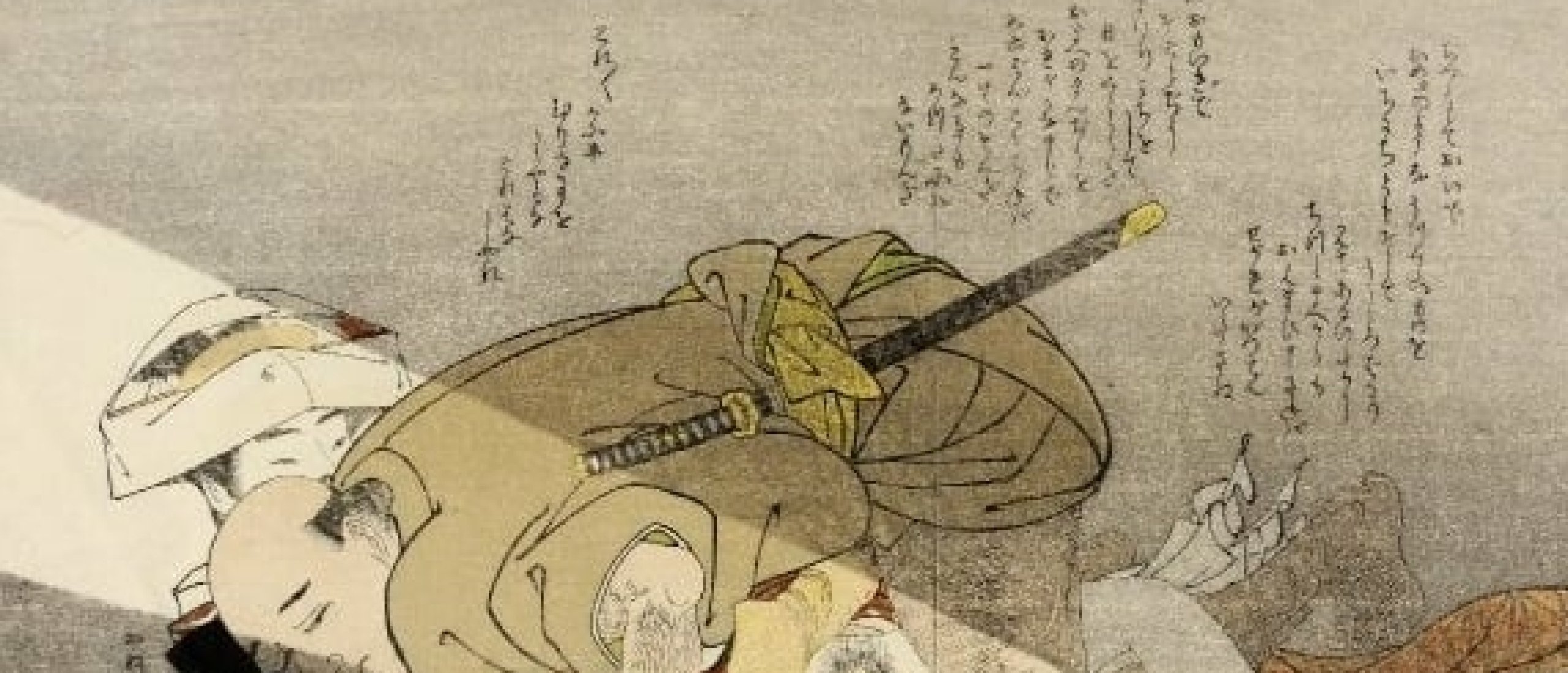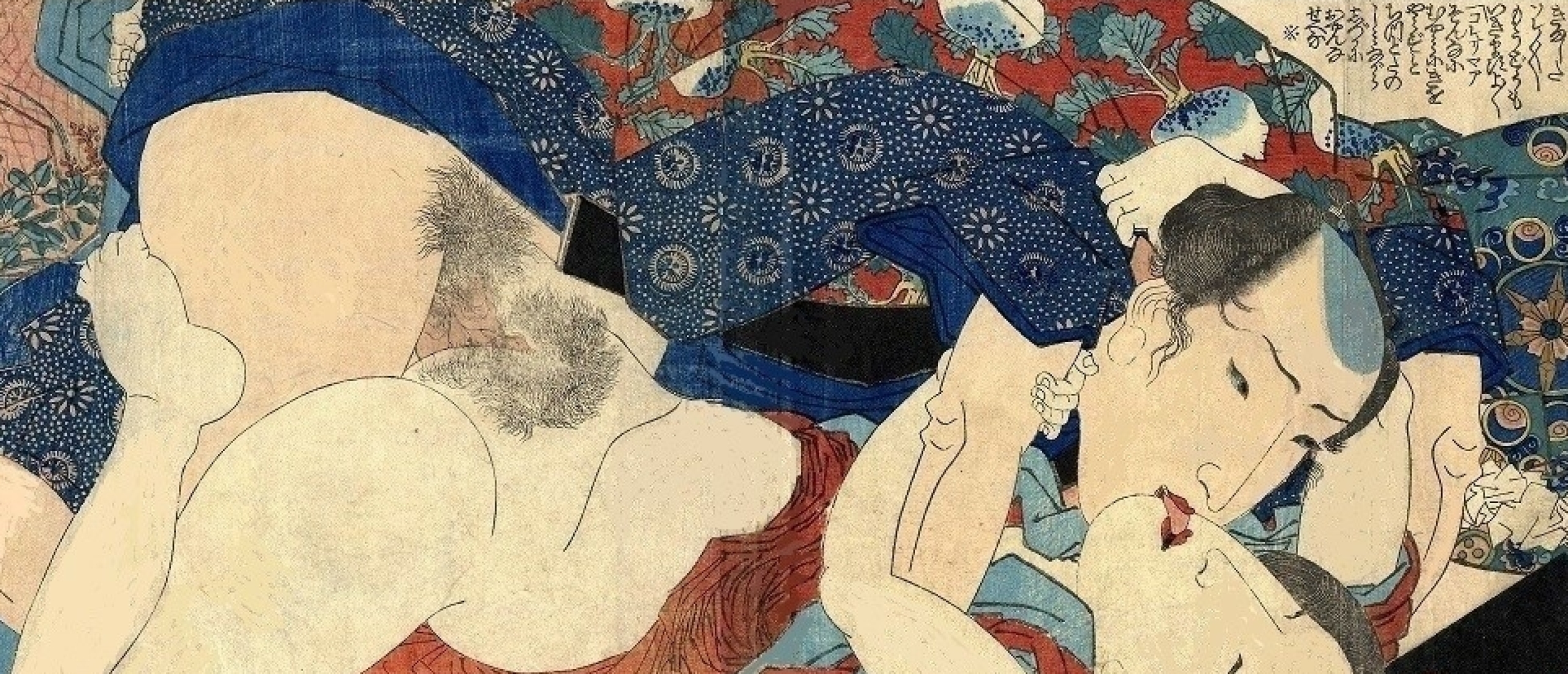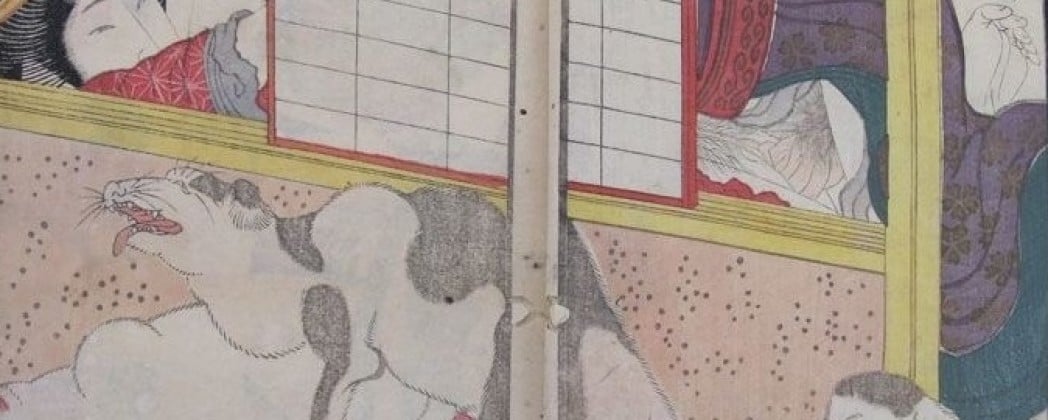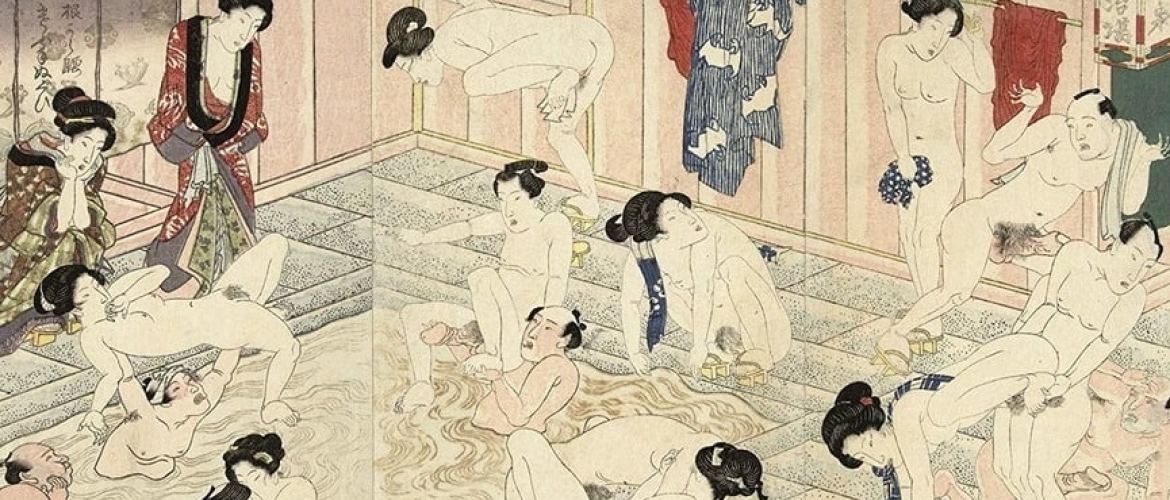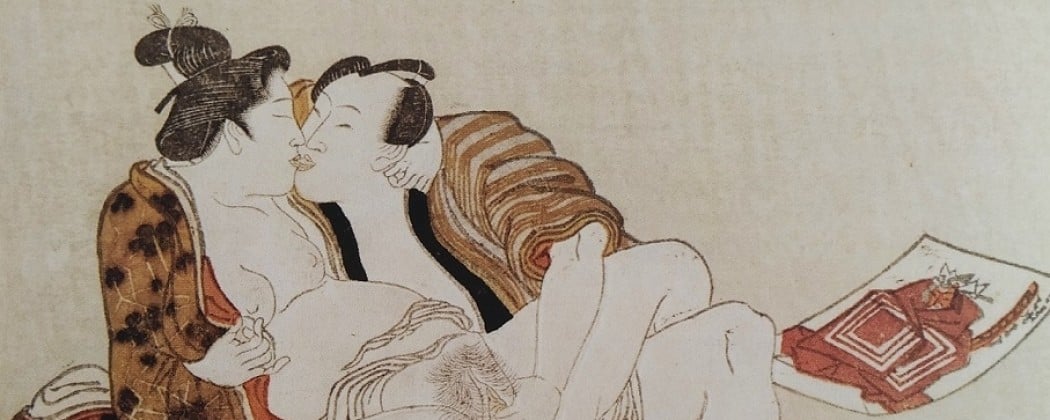
In the early 18th century the manufacture of official calendars in Edo (former Tokyo) were only authorized by the shogunate to a limited amount of publishers. From the 1750s there seems to have been a trend of privately commissioned small calendar prints (egoyomi) that were produced for wealthy patrons who would share them among the members of their literary circles.
Rebus Form
The specific sequence of the ‘long’ (30 day) or ‘short’ (29 day) months of the coming year was indicated in their composition or through the incorporation of numerals, sometimes in rebus form.
Shunga Designers
In the beginning of the 19th century, egoyomi was adopted by shunga designers. They were often issued in sets of twelve and commonly included a wonderfully printed wrapper, in which the print could be stored.
Few Survived
The prints were not signed and the printing was subtle, similar to that of surimono. Hokusai (as often) was a pioneer in the design of the small-sized egoyomi. He and his school produced a great many of these works, but few survived.
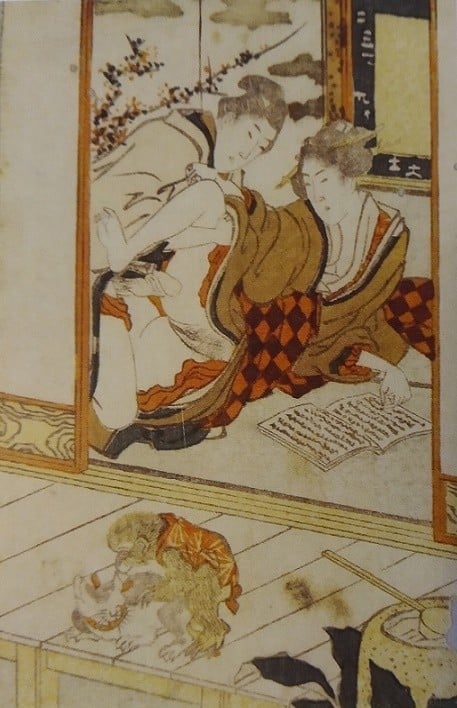
Fig.1.
Year of the Monkey
An egoyomi depicting a loving couple (Fig.1), with a book before them and a copulating monkey and cat on the foreground veranda. The frame of the screen behind the couple include the numerals for the long months (2, 5, 7, 9, 10, 11), which points to 1812, Year of the Monkey.
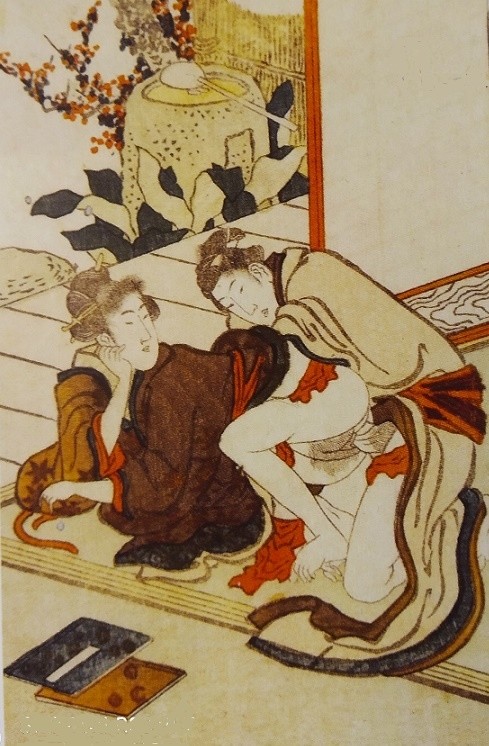
Fig.2.
Calendral Associations
A man and woman in the corner of a room (Fig.2); the sliding doors are open and two closed books are on the floor before them. The image is believed to date to c.1812-14, but there are no calendral associations.
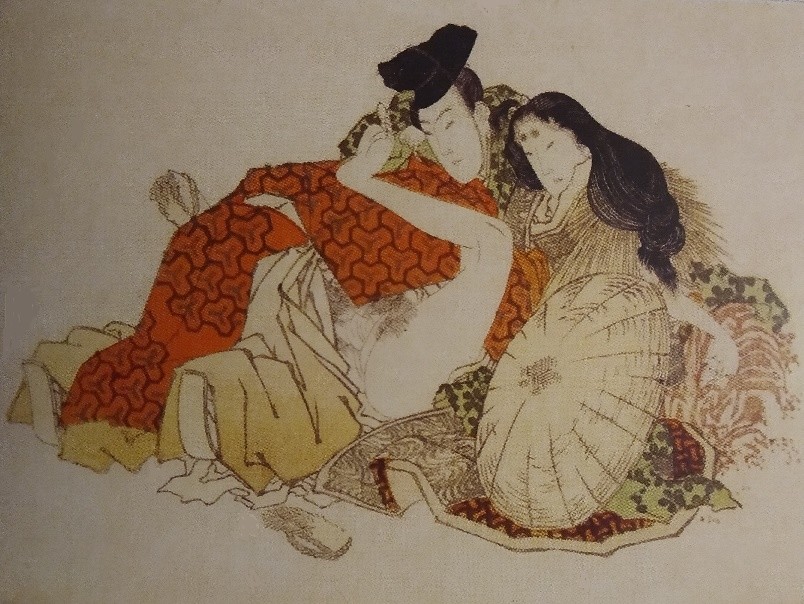
Fig.3.
Mistress of Yoshitomo
The large straw hat and the aristocratic countenance (eyebrows, hair and dress) suggests that the woman might be Tokiwa Gozen (Fig.3), the 12th-century mistress first of Minamoto (no) Yoshitomo and later of his enemy Taira (no) Kiyomori. Here she is having sex with an unidentified courtier. No calendrical information is apparent on the print. The image is believed to date to c.1812-14.
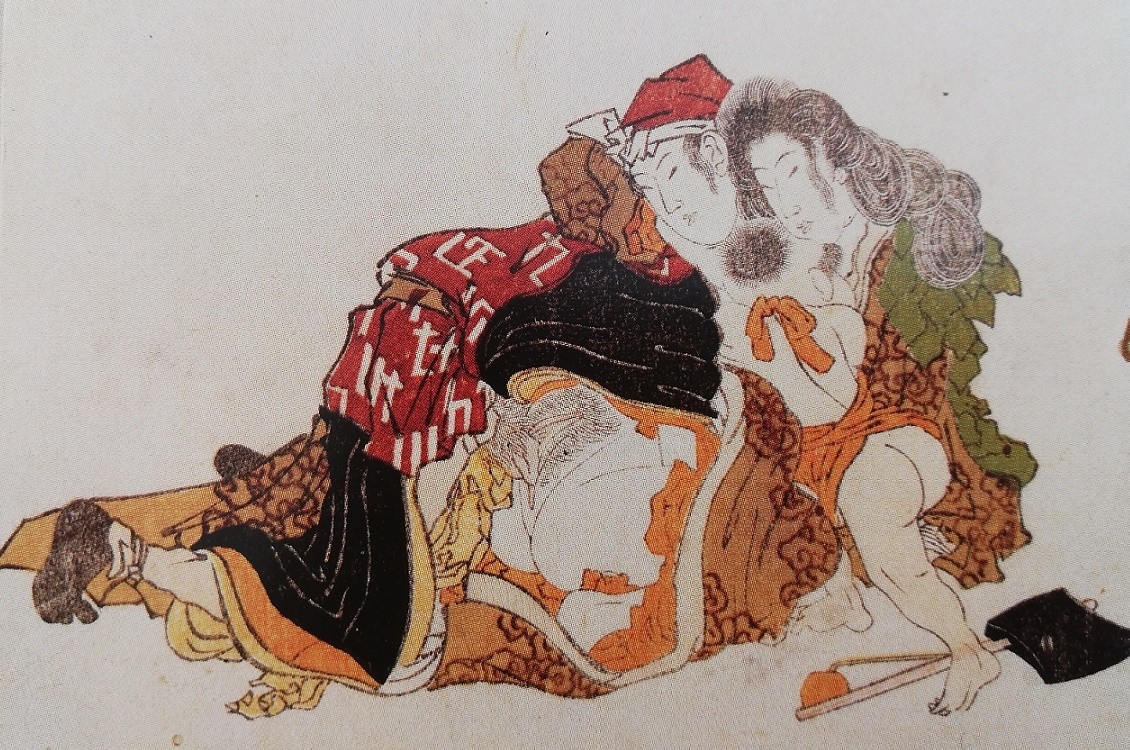
Fig.4.
Clambering Kintaro
The woman Yamauba and her samurai lover (Fig.4). Yamauba is best known as the foster mother of the strong boy Kintaro (Sakata [no] Kintoki), a retainer of the 12th-century Chinese novel on the 108 Suikoden Heroes. You can find two exciting examples of this subject below…
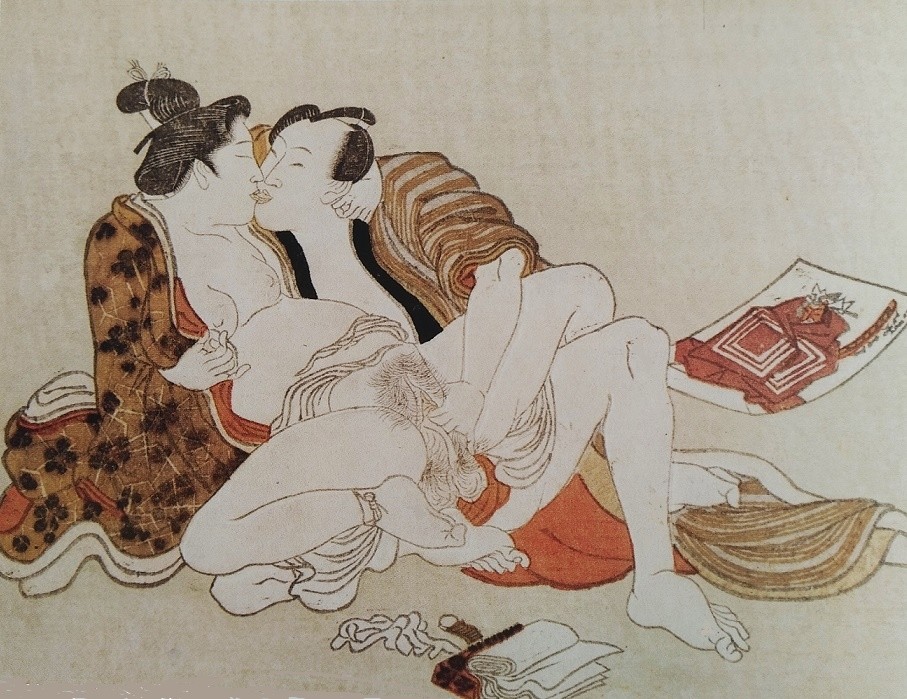
Fig.5.
Ichikawa Danjūrō
An intimate couple passionately kissing. On the floor to their right lies a print of an actor from the Ichikawa Danjūrō line in the role of Shibaraku and before them a wad of paper. No calendrical information appears on the print.
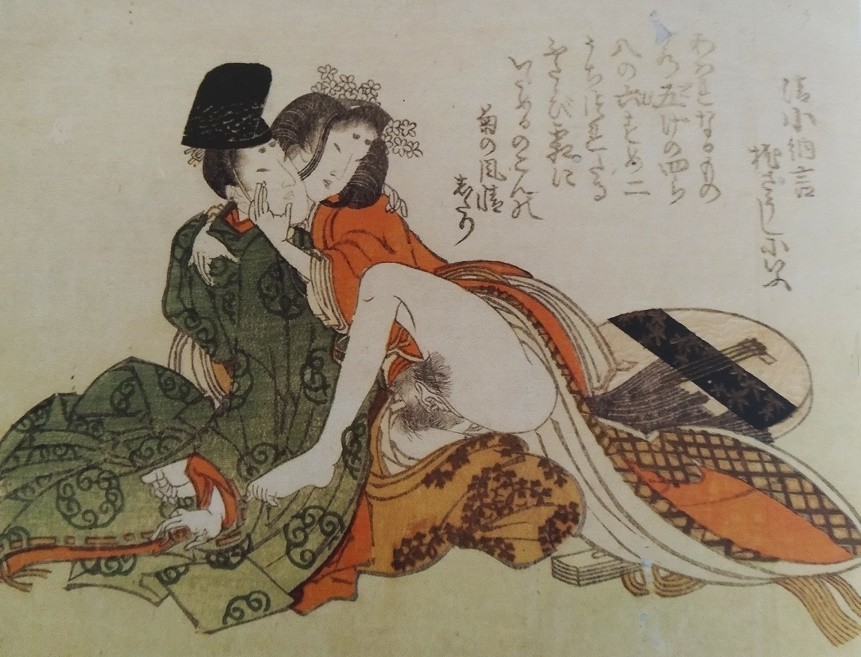
Fig.6.
Goddess of Music
An aristocratic couple having sex. They are perhaps the goddess of music and one of the Seven Gods of Good Fortune (shichifukujin), Benten (Benzaiten), and the courtier Hōjō (no) Tokimasa (1138-1215).
Biwa
Benten’s attribute, the biwa (lute), lies in the background. The calendrical information is contained in the text: the short months for 1814. Year of the Dragon. Not surprisingly, the dragon is closely associated with Benten.
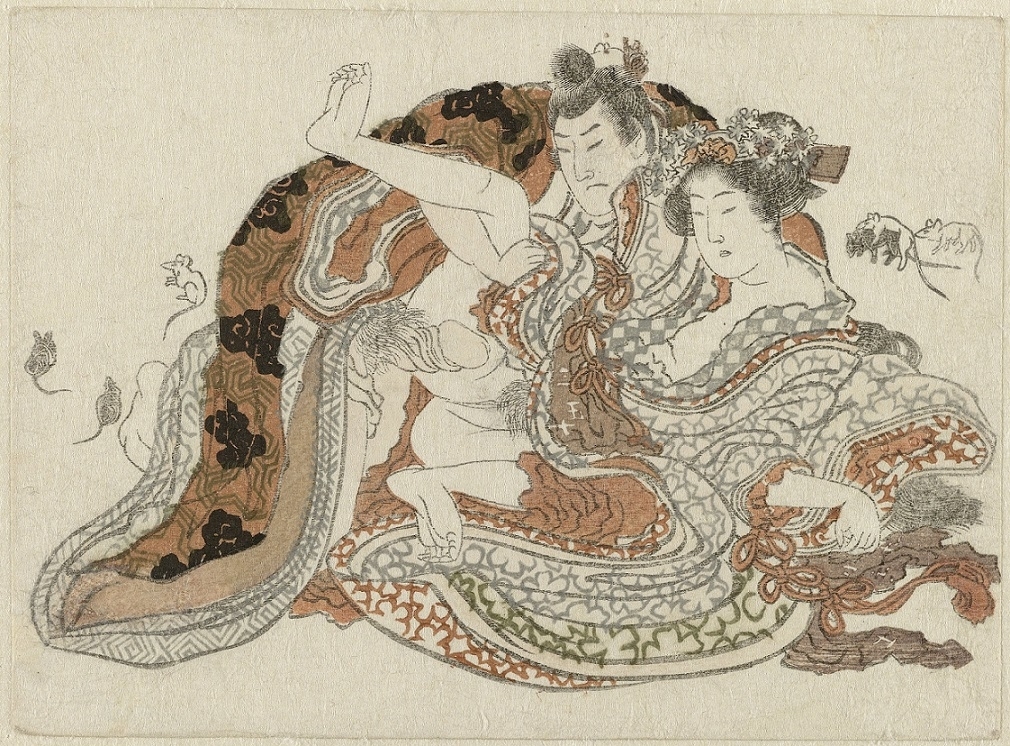
Fig.7. (Housed in the Rijksmuseum A’dam)
Year of the Rat
A man and a woman with suspended kimonos. The print is for the year of the rat (1816). In the woman’s clothing, the short months are 2, 5, 7, 9, 11 and a leap month. Rats mating in the background.
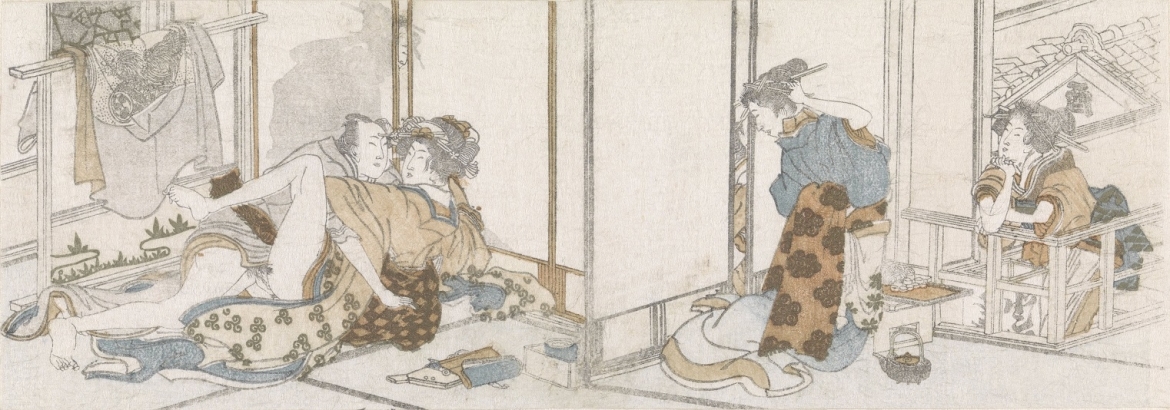
Fig.8. (Housed in the Rijksmuseum A’dam)
Crack
A woman spies on a loving couple through the crack of a screen to the left of the scene. She herself is depicted on the right and the viewer also sees the copulating couple through the same crack. To the rear right, a second woman is watching the spy. The print was issued c.1813.
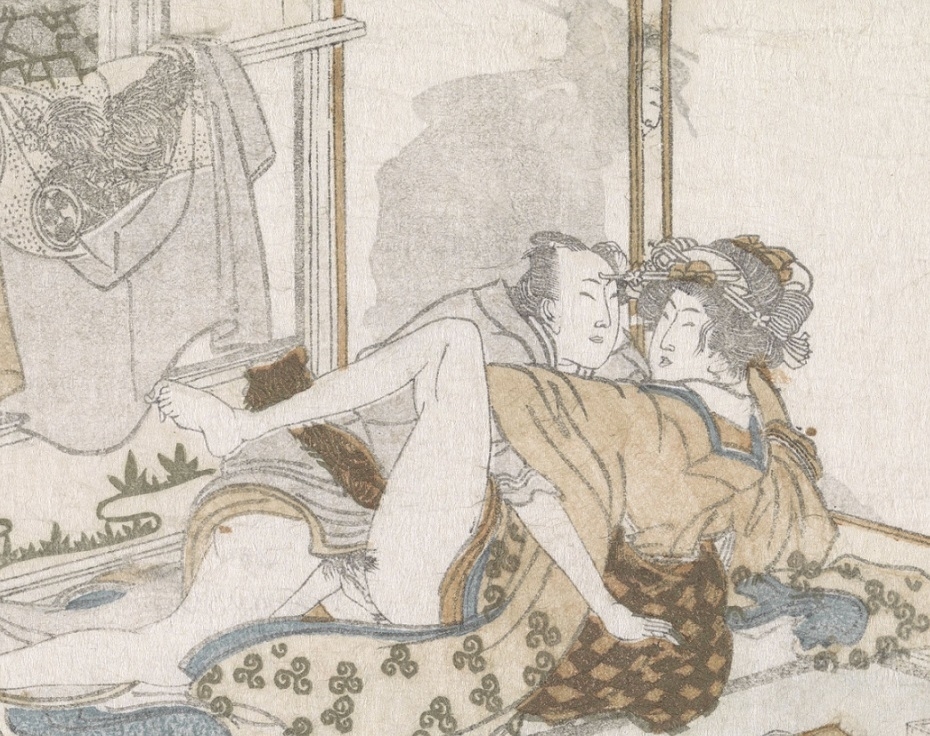
Fig.8a.
